James Webb: Telescope captures stunning images of a dying star
- Published
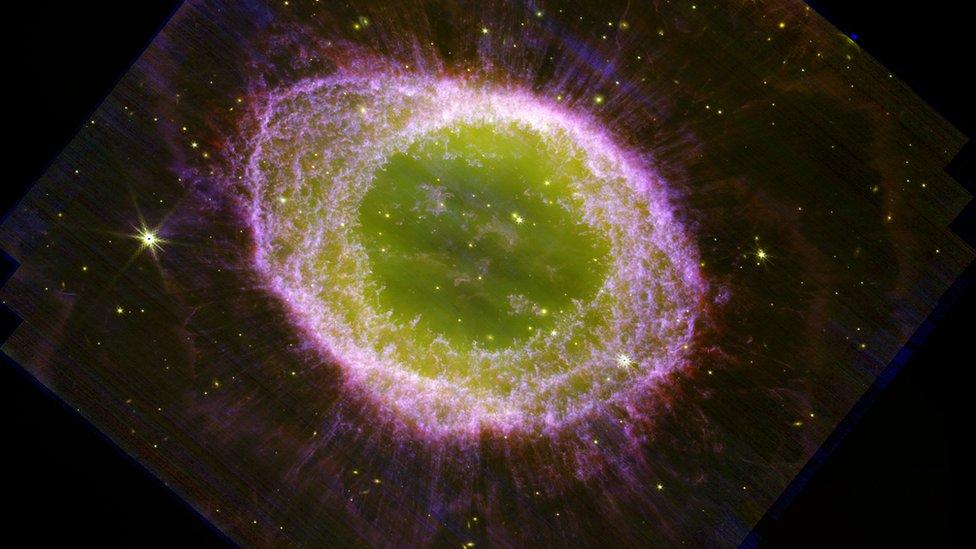
The University of Manchester has released new images of the Ring Nebula captured on the James Webb telescope. The Ring Nebula is a dying star, and although it can be seen by astronomy enthusiasts all summer using a personal telescope, these are some of the most details images ever captured of it. Albert Zijlstra, Professor in Astrophysics at the University of Manchester, said: “We are amazed by the details in the images, better than we have ever seen before. We always knew planetary nebulae were pretty. What we see now is spectacular.”
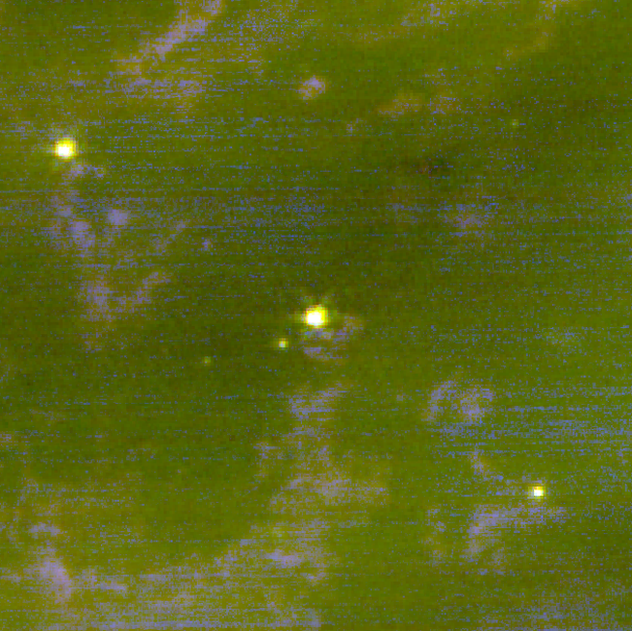
The bright spot you can see in the centre of this image is the dying star. When it burns up, it gets extremely hot, but it's not used up all of it fuel and is starting to cool down.
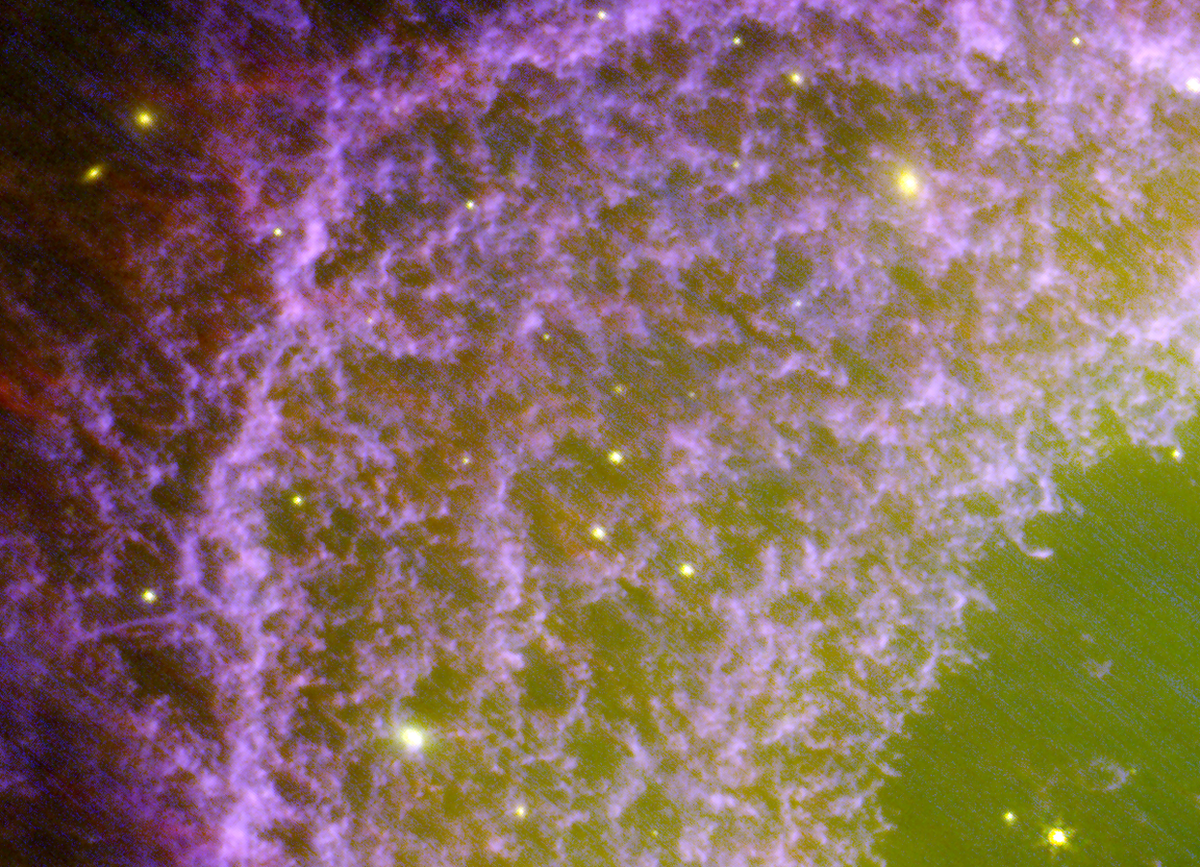
In this close-up of the nebula, you can spot lots of little clumps in its ring - in fact the team counted as many as 20,000. They contain molecules of the gas hydrogen, and they are a lot cooler than the rest of the nebula. There's so much of it that almost half of all the gas contained in the nebula can be found in these clumps.
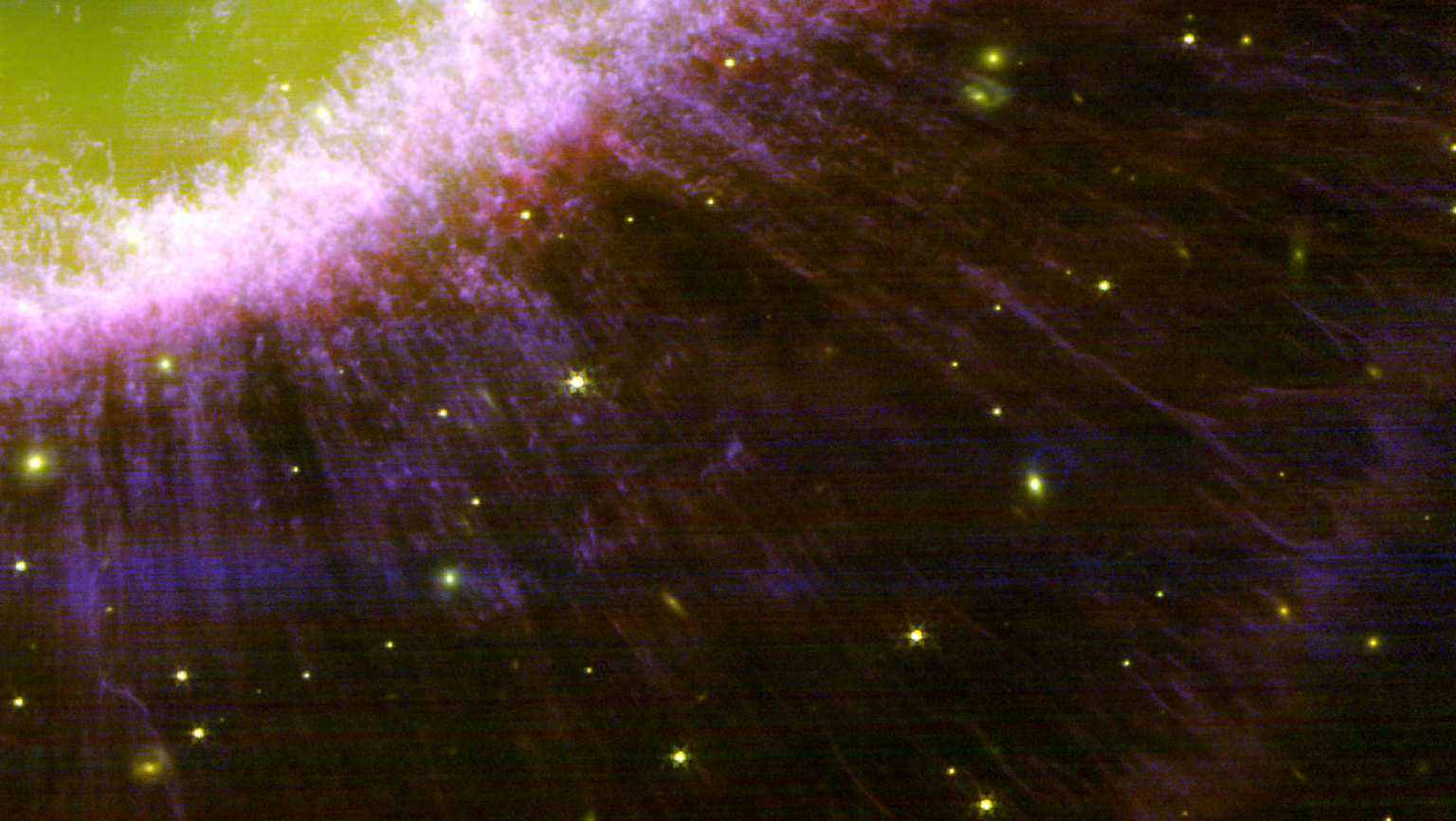
The team also noticed these lines travelling toward the centre of the nebula. Scientists are not entirely sure where they come from, and have said more research is needed to understand the nebula as a whole.
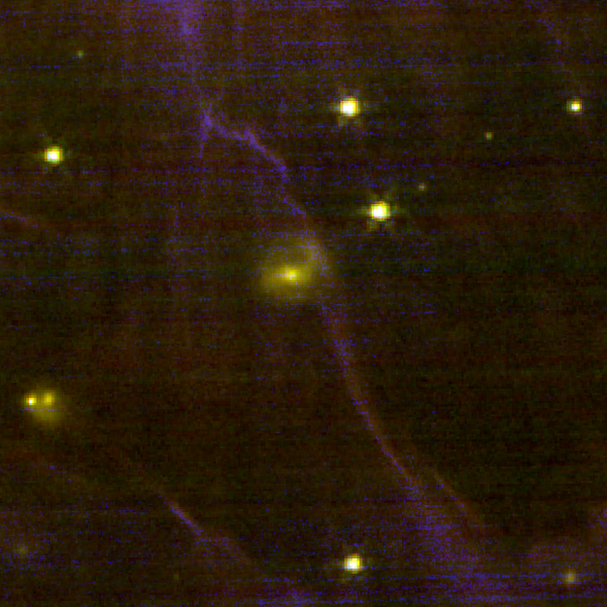
This close up of the halo shows wisps of hot gas that are blowing into the halo and sweeping up the material that's left in there.
